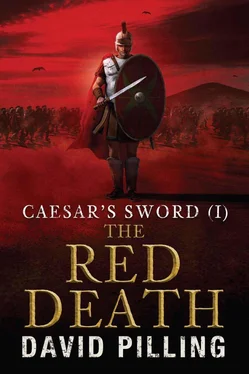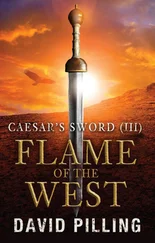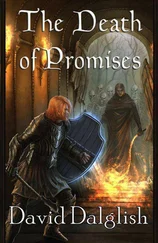David Pilling - The Red Death
Здесь есть возможность читать онлайн «David Pilling - The Red Death» весь текст электронной книги совершенно бесплатно (целиком полную версию без сокращений). В некоторых случаях можно слушать аудио, скачать через торрент в формате fb2 и присутствует краткое содержание. Год выпуска: 2013, Жанр: Исторические приключения, на английском языке. Описание произведения, (предисловие) а так же отзывы посетителей доступны на портале библиотеки ЛибКат.
- Название:The Red Death
- Автор:
- Жанр:
- Год:2013
- ISBN:нет данных
- Рейтинг книги:4 / 5. Голосов: 1
-
Избранное:Добавить в избранное
- Отзывы:
-
Ваша оценка:
- 80
- 1
- 2
- 3
- 4
- 5
The Red Death: краткое содержание, описание и аннотация
Предлагаем к чтению аннотацию, описание, краткое содержание или предисловие (зависит от того, что написал сам автор книги «The Red Death»). Если вы не нашли необходимую информацию о книге — напишите в комментариях, мы постараемся отыскать её.
The Red Death — читать онлайн бесплатно полную книгу (весь текст) целиком
Ниже представлен текст книги, разбитый по страницам. Система сохранения места последней прочитанной страницы, позволяет с удобством читать онлайн бесплатно книгу «The Red Death», без необходимости каждый раз заново искать на чём Вы остановились. Поставьте закладку, и сможете в любой момент перейти на страницу, на которой закончили чтение.
Интервал:
Закладка:
The Emperor sat on a carved wooden throne. My first thought was that he looked more like an ageing cherub than ever. He also looked bored, and drummed his fingers impatiently as the tribune of the court, a tall, imposing figure in full military regalia, stepped forward to the edge of the dais.
“Bring forth the accused,” he barked, and motioned at my guards. They seized my arms and pushed me into the middle of the floor, where I was made to face the Emperor.
All the great ones of the city were present. Theodora sat on a throne to the right of her husband, her face taut and emotionless under an unusually thick layer of powder and paint. The thin, saturnine figure of John of Cappadocia stood next to her. It did me no good to recall that he was rumoured to have imprisoned many of his political enemies in dungeons under the Praetorium, where he tortured and abused them as the whim took him.
I looked for support, and saw Narses seated on one of the benches to my left among a gaggle of senators. He briefly met my eye and gave a sort of one-shouldered shrug, the meaning of which was clear: shift for yourself.
My dying hopes were restored a little when I saw Belisarius. He stood by himself in a corner, a lonely and isolated figure, clad in drab fatigues and with a battered helmet tucked under his arm. His appearance made for a stark contrast to the military splendour of the Excubitors. I suspect it was deliberate. Here I stand, Belisarius silently proclaimed, the plain, unaffected soldier. Trust in me.
My heart leaped as I saw Caledfwlch strapped to his hip. Narses must have given it to him. I allowed myself to believe that the pair of them had cooked up some scheme to save me.
Belisarius nodded curtly at me, and returned to his intense study of the floor.
“Silence,” boomed the tribune, though the chamber was already silent, “silence for the conqueror of the Vandals and of Africa, the Pious, Happy and Illustrious, Victorious and Triumphant Justinian, Emperor of the Romans!”
Having pronounced these absurd and vainglorious epithets, he stepped aside so that all eyes might rest on the Emperor. Justinian stifled a little yawn and cleared his throat.
“Senators, lawyers, and other distinguished men of Rome,” he said, “I have many important affairs of state to attend to. This is not one of them, so let us be done with it quickly. I am given to understand that this man standing before us…”
He paused. “Remind me of his name,” he said irritably.
One of the clerks of the court shot to his feet. “Coel,” he squeaked.
“Britannicus,” said another at almost exactly the same time.
Justinian glared at them both. “Coel, Britannicus, which is it?” he demanded, “I can’t try the wretched man if I don’t know his name.”
“His name is Coel,” said Theodora in a flat and lifeless monotone, “Britannicus is a name I gave him, long ago.”
“Coel ap Amhar ap Arthur,” I said, louder than intended. I stood a little straighter, despite the weight of my manacles, and shrugged off my fear.
It was surprisingly easy. My contempt for most of the people in the room helped: the vain little Emperor, clothing himself in borrowed glory; his cruel, degraded consort; the mob of self-serving politicos and pinch-faced lawyers. They were all vermin, fighting for their place on the dungheap of the Empire. Only Belisarius stood apart, and even he was tainted by association.
“That’s a noise, not a name,” Justinian grumbled, “still, let’s proceed. Bring in the accuser.”
The tribune bellowed out a summons, and three men appeared in the doorway. Two were Excubitors, and the third was Leo.
I drew in a sharp intake of breath. He had aged in the year since I had last seen him. His black hair was now white as snow, and his roughly handsome face marked by deep lines of suffering and privation. His body had lost none of its wiry muscularity, though, and he still carried himself with the same insufferable arrogance and damn-you air.
Like me, his wrists were bound by iron manacles, but he swaggered into the courtroom as though he owned it. His guards marched close behind him, and behind them filed a wretched group of men in torn and soiled rags. They were also manacled, and their ankles tied together by lengths of chain.
Some of my old fear returned as I recognised them as men I had known in the Hippodrome. One was Rufinus, the senior overseer of the Greens who had stood beside Leo in the Hippodrome and exhorted the rioters to burn Constantinople.
I glanced at Theodora, but she was far too subtle to allow any look of understanding to pass between her and Leo. Like the consummate actress she was, she maintained her stony expression, a mask of aloof and impartial judgment.
Leo took his place beside me without even acknowledging my presence. My wrists itched with the desire to swing my manacles at his head and dash his treacherous brains all over the floor, but one of the Excubitors stepped between us.
Rufinus and the other men were made to stand behind us. I could feel their venomous glares boring into the back of my head.
“Now,” said Justinian when all was quiet again, “I am informed that this man Leo, known as Leo the Armenian, was one of the chief agitators of the riots that afflicted our city, and threatened our person, last summer. Those wretches behind him were his accomplices. Since then they have been in hiding, and only recently gave themselves up on the promise of safe-conduct.”
He glanced anxiously at Theodora. “That is correct, Caesar,” she said. “By their own admission they are all guilty of conspiracy and treason. They surrendered to my mercy, on the pledge that their sentences might be reduced to exile or military service.”
“Why should I spare their lives?” asked Justinian.
“On the grounds that they have identified one who was as great a traitor as they. One who has not only escaped punishment but achieved officer rank in the army. They accuse Coel of conspiring with them to murder you, Caesar, and replace you with the late Senator Hypatius.”
The Emperor had clearly been well-drilled before the trial by his wife, and was merely going through the motions, but still he looked uncomfortable. The situation was most irregular, and when Theodora had finished speaking a buzz of discord rose from the packed benches.
One of the senators rose to his feet, a magnificent creature, grey-haired and gorgeously dressed, and so smoothly fat I half-expected him to roll away.
“These men are condemned out of their own mouths,” he cried, pointing an accusing finger at Leo and his cronies, “as such they are in no position to accuse others. Why should we put faith in the testimony of criminals who sought to bring down the state?”
There was a low murmur of agreement, though it quickly died away as Theodora swept the benches with her basilisk eyes.
“I have heard their testimonies in private, and am satisfied as to their validity,” she said, “does anyone here question my judgment?”
That was a direct challenge, and my low opinion of everyone present was only confirmed by the silence that rolled over the chamber. Even the obese senator was cowed, and resumed his seat. I looked to Belisarius, but his eyes remained fixed on the floor, his mind apparently elsewhere.
“Let each of them come forward,” said Justinian, “and say before us what they said to my wife. Leo the Armenian, you first.”
Leo stepped forward with a smirk, gave a brief duck of his head in respect to the Emperor, and launched into a tirade of appalling lies. To hear him, it was I who had first hatched the plot to depose the Emperor, I who had organised the temporary alliance between the Blues and the Greens, I who had permitted, even encouraged, the plundering of the homes of innocent citizens…the list of charges went on and on, spoken with eloquent conviction by a man who had (I suspect) been assured of Theodora’s protection.
Читать дальшеИнтервал:
Закладка:
Похожие книги на «The Red Death»
Представляем Вашему вниманию похожие книги на «The Red Death» списком для выбора. Мы отобрали схожую по названию и смыслу литературу в надежде предоставить читателям больше вариантов отыскать новые, интересные, ещё непрочитанные произведения.
Обсуждение, отзывы о книге «The Red Death» и просто собственные мнения читателей. Оставьте ваши комментарии, напишите, что Вы думаете о произведении, его смысле или главных героях. Укажите что конкретно понравилось, а что нет, и почему Вы так считаете.












